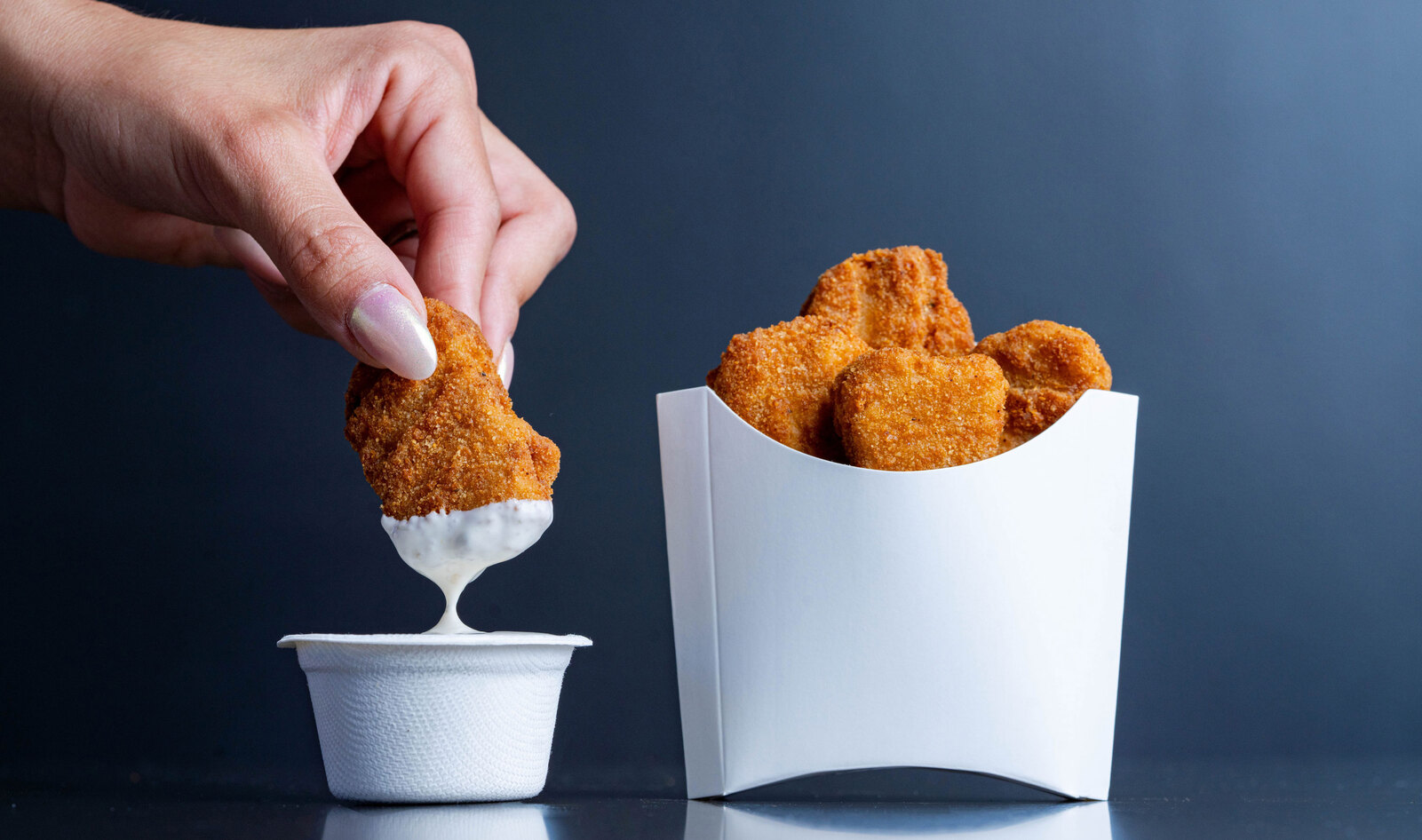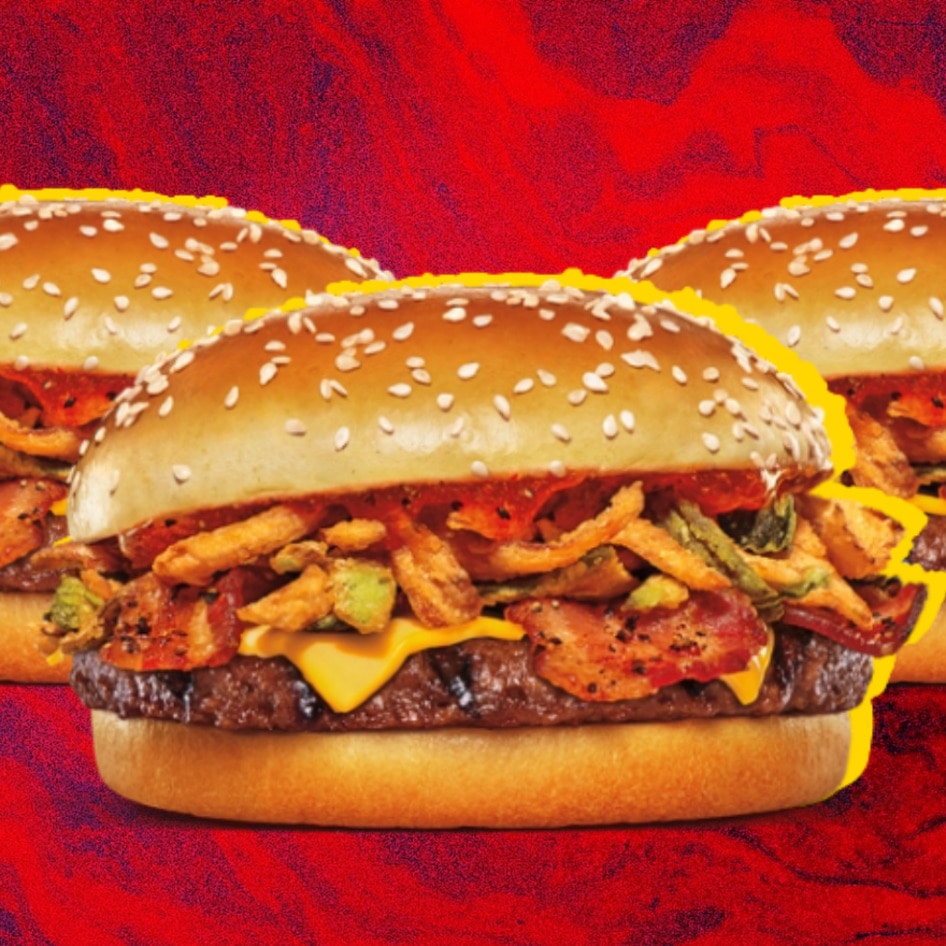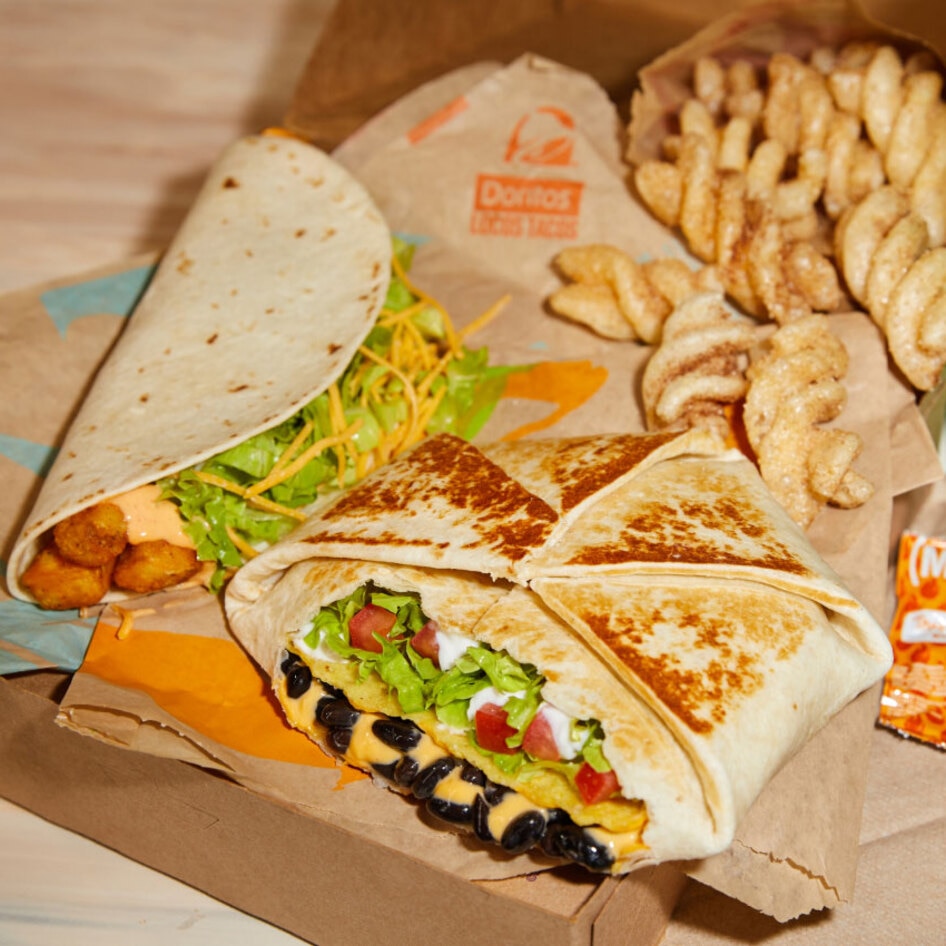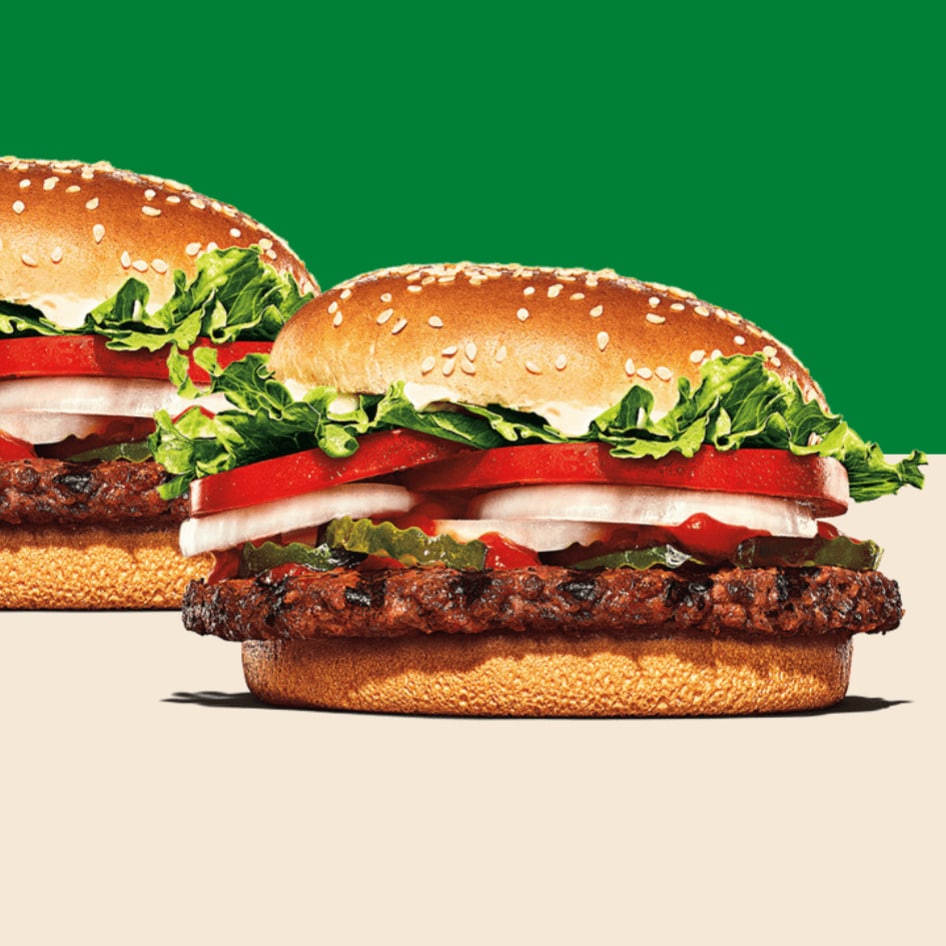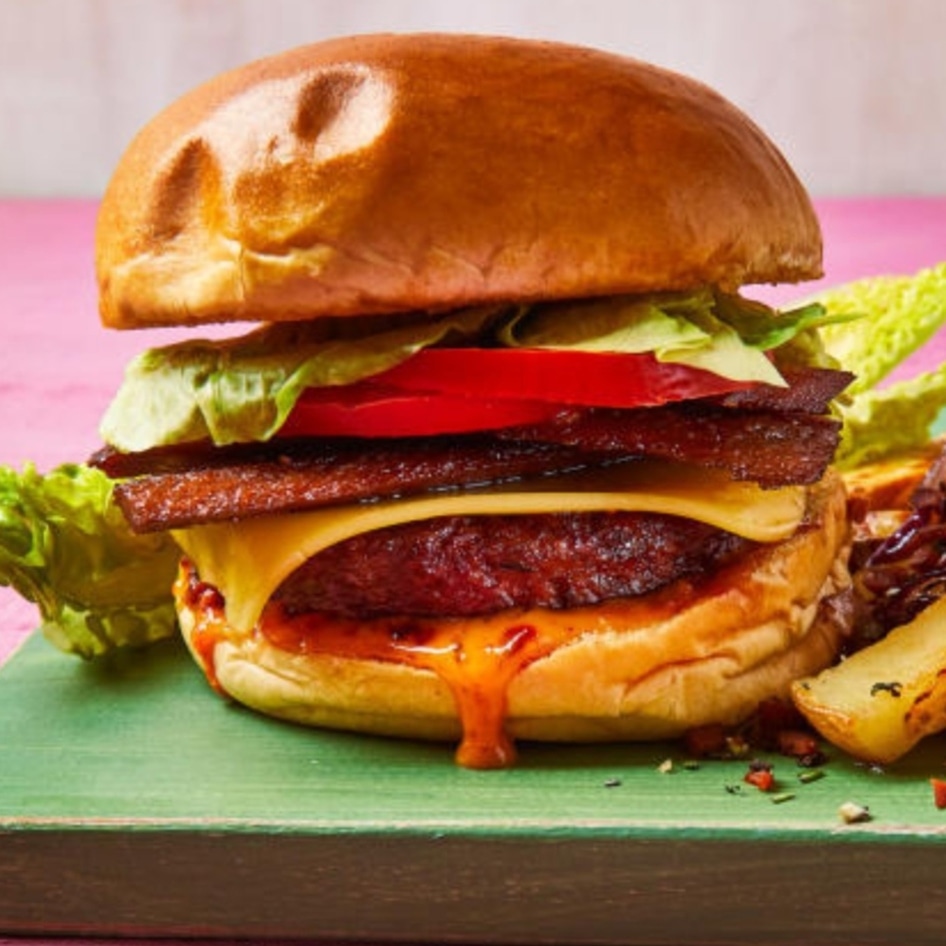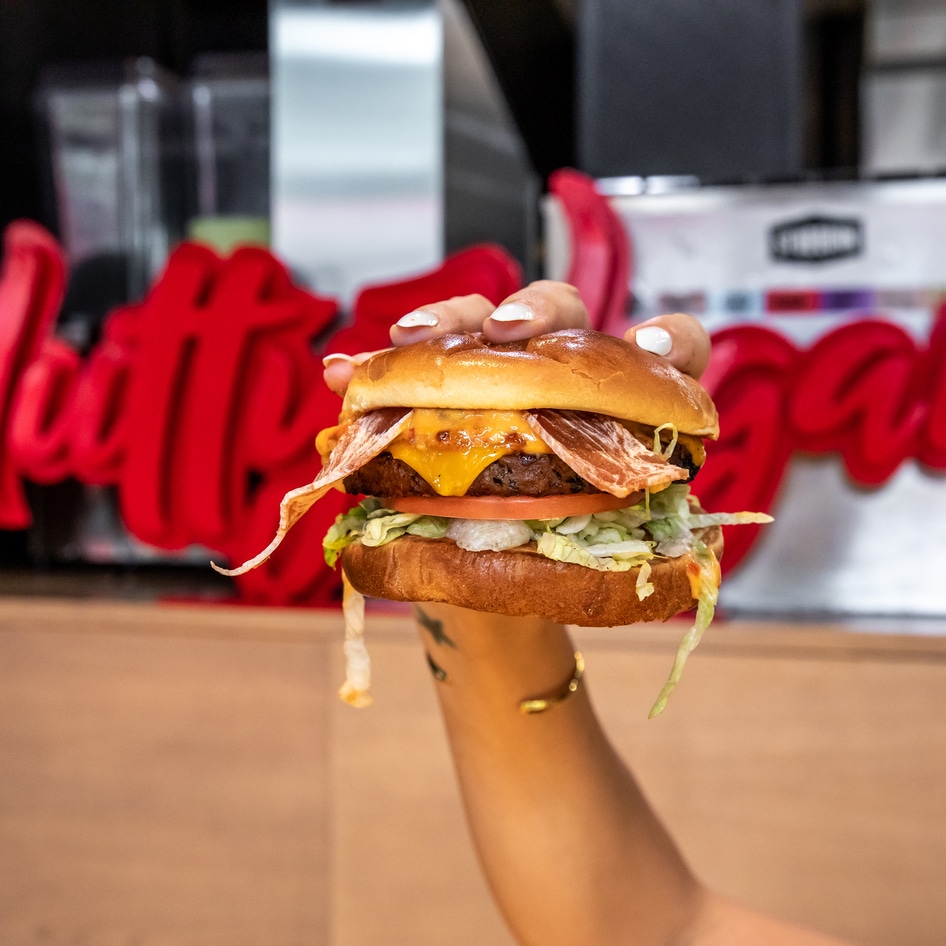Four years ago, a culinary innovation hit the menu at Burger King with the national launch of the Impossible Whopper. This option is a plant-based take on the chain’s most popular burger, the Whopper, which was created back in 1957 by Burger King co-founder James McLamore.
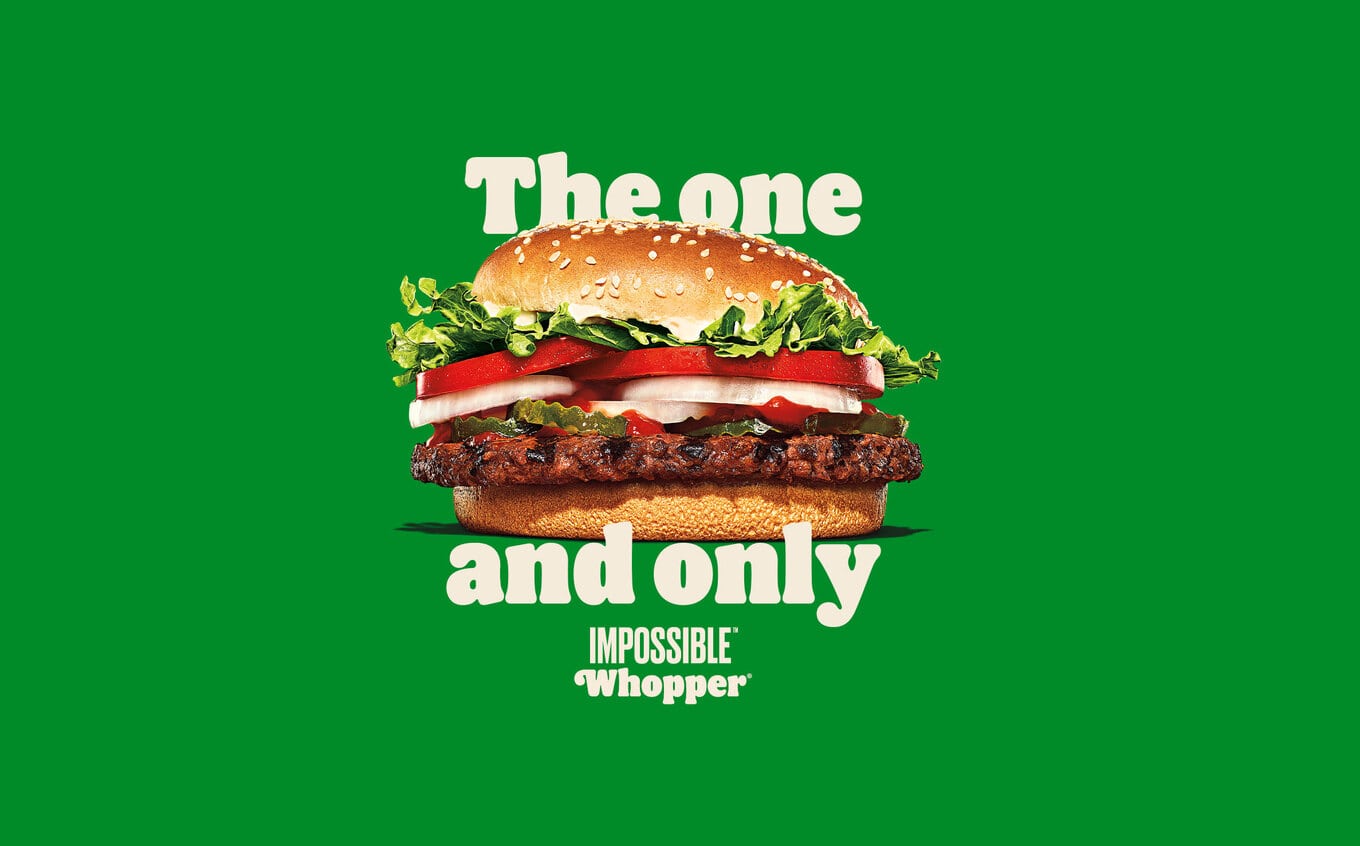 Burger King
Burger King
With its meat-like taste delivered by Impossible Foods’ innovative patty, the Impossible Whopper marked a turning point in the way the world saw plant-based food.
While plant-based burgers might seem like the norm now, back in 2019, Mike Salem—former head of culinary innovation at Burger King—took a bold step with the Impossible Whopper. And this plant-based take on Burger King’s iconic Whopper wasn’t just a new menu item, it ushered in a new era in the fast-food food industry that inspired other chains to take note.
 Recreate Food
Recreate Food
What’s next for Salem? He’s still pushing the envelope, and this time, with a new plant-based meat venture.
First Impossible Whopper. Next? Vegan chicken
Having worked as a chef for 25 years, Salem explains that his journey into the world of plant-based cuisine started before the launch of the Impossible Whopper.
“A few years prior to the launch of the Impossible Whopper, I became intrigued by the plant-based category and its potential to create a force for good within the global culinary landscape,” Salem tells VegNews.
“It was then, even prior to the inception of the Impossible Whopper idea, that I began to expand on ‘Compassionate Culinary’ as a new and sustainable plant-forward trend that could change the way we approach food for generations to come,” he says.
This was the same approach Salem took when he worked with Kevin Hart to bring his vegan fast-food chain Hart House to life with a curated menu of burgers, sandwiches, and salads. Like the Impossible Whopper, Hart House is also celebrating an anniversary: its first year in business, with four locations currently in operation and counting.
Building on his success with the Impossible Whopper and Hart House, Salem recently embarked on a new journey with Recreate Food, which he joined as president and co-founder. This Phoenix, AZ-based venture emphasizes flavor and the ability to replicate the eating experience of real animal protein, specifically chicken, using plant-based ingredients such as pea protein.
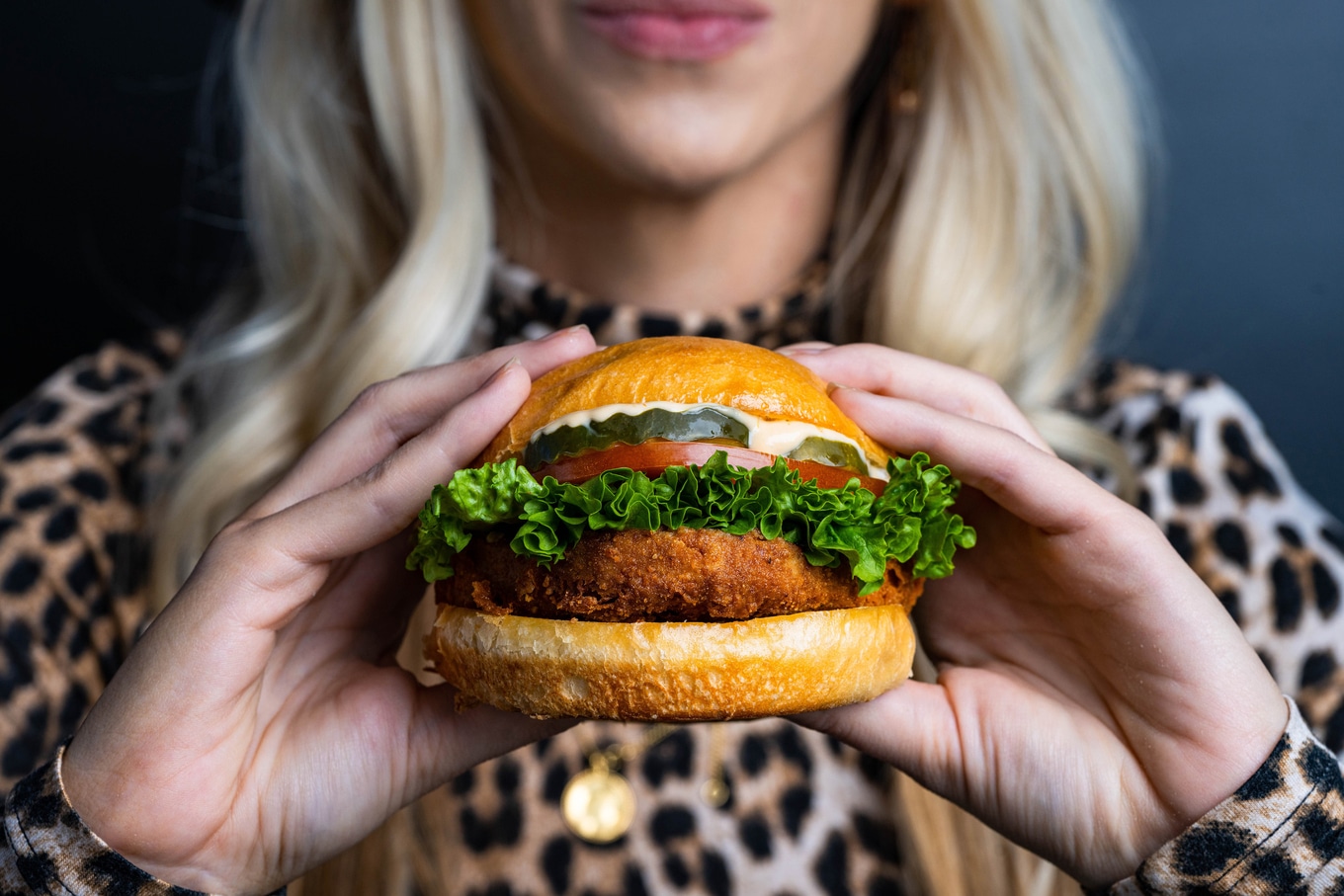 Recreate Food
Recreate Food
Recreate Food makes vegan chicken in unbreaded filets, tenders, nuggets, and grounds specifically for use in multi-unit restaurant chains. For Salem, the startup’s purpose is not just about creating another plant-based alternative. Rather, it’s about achieving a unique blend of taste and versatility that resonates with carnivores, flexitarians, vegans, and vegetarians.
“Our goal is not to replace all animal protein in the world or to convert all carnivores to vegans,” Salem says. “It’s simply to provide a delicious alternative to animal protein that could relieve the strain we’ve been placing on our bodies, our planet, and the animals we share it with.”
“When scaled, imagine what an amazing impact that could have on the food service industry,” Salem says.
The company’s plant-based chicken stands out for its chef-driven approach, ensuring a delicious and versatile product. Expanding on his Compassionate Culinary framework, his long-term goals envision Recreate Food as a force for good, ensuring that consumers don’t feel they must sacrifice cravings for healthy and environmentally friendly options.
“It’s our goal to ensure we continue to approach food as chefs first and scientists second,” he says. “This is part of our brand ethos, and it’s what makes our products uniquely delicious and craveable.”
Currently, Recreate Food’s products are available to chefs and restaurants with plans to expand into grocery and consumer goods.
Impossible Whopper and beyond
After four years, Impossible Whopper’s legacy continues, not only as a plant-based burger but as a catalyst for change.
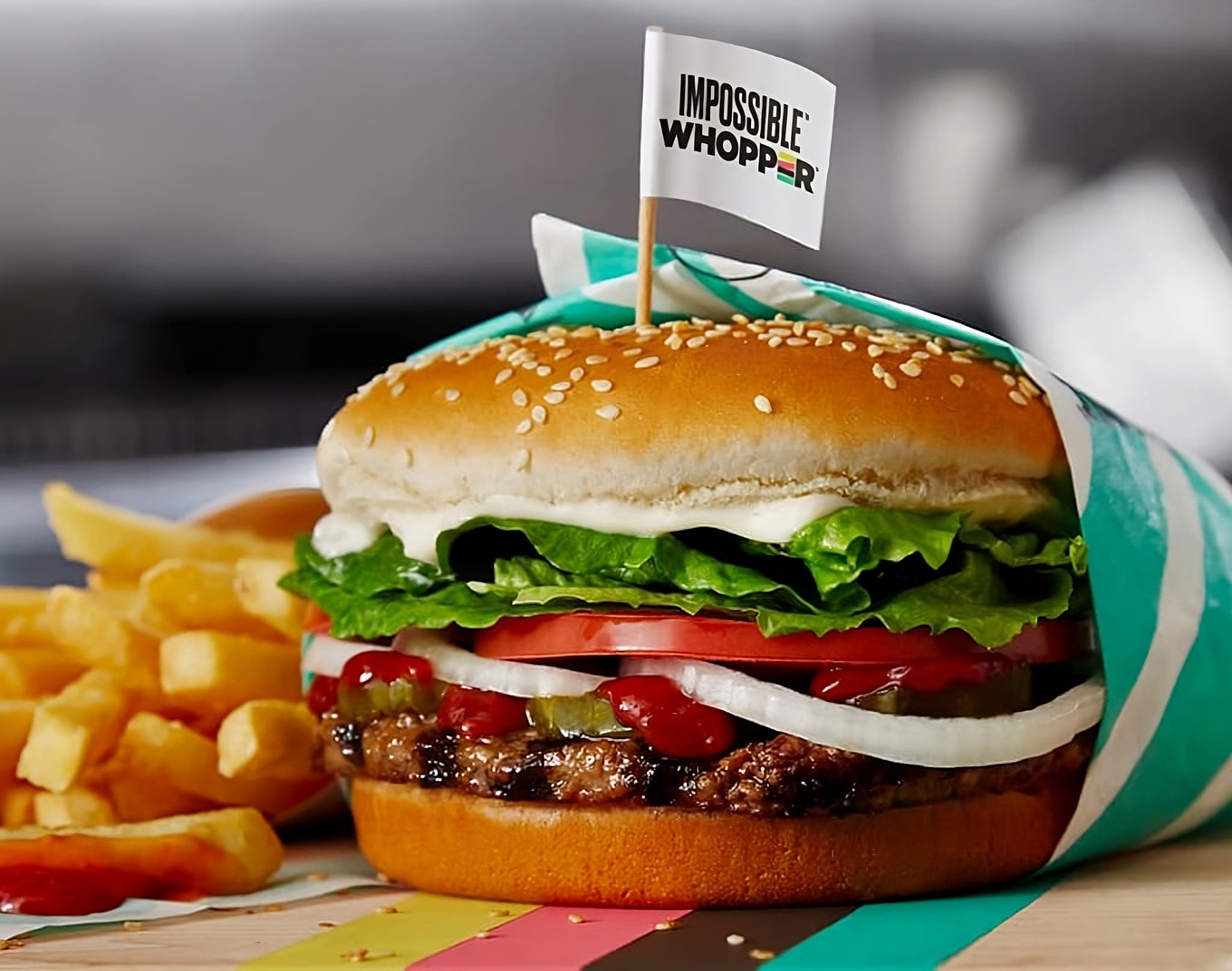 Burger King
Burger King
“Burger King and the Impossible Whopper helped put Impossible and plant-based meat on the map,” Sherene Jagla, Impossible Foods Chief Demand Officer, recently told VegNews. “We were able to serve a delicious, trailblazing product to consumers across the country, and in a way that was easier and more convenient than ever. The same is true for our longstanding partnerships with other restaurants like White Castle, Starbucks, Red Robin, and Jamba.”
“Making meat from plants more accessible is crucial to growing the plant-based category,” Jagla said. “We’re excited to continue the work and welcome more consumers into the space.”
For its part, Burger King has also explored vegan chicken together with Impossible Foods for a limited launch last August. At select locations in Cincinnati, OH, the chain tested a plant-based version of its Original Chicken Sandwich. However, this sandwich has yet to hit Burger King locations domestically.
However, since the launch of the iconic Impossible Whopper, Burger King has deeply explored plant-based food on its global menus, most heavily in Europe where it consistently tests month-long vegan pop-ups with its Unilever-owned supplier The Vegetarian Butcher.
A recent report conducted by nonprofit ProVeg International placed Burger King at the forefront of the global fast-food industry in terms of plant-based offerings. The comprehensive analysis examined the menus of major chains like McDonald’s, Subway, Pizza Hut, and KFC across nine countries, including the United States, Europe, and South Africa.
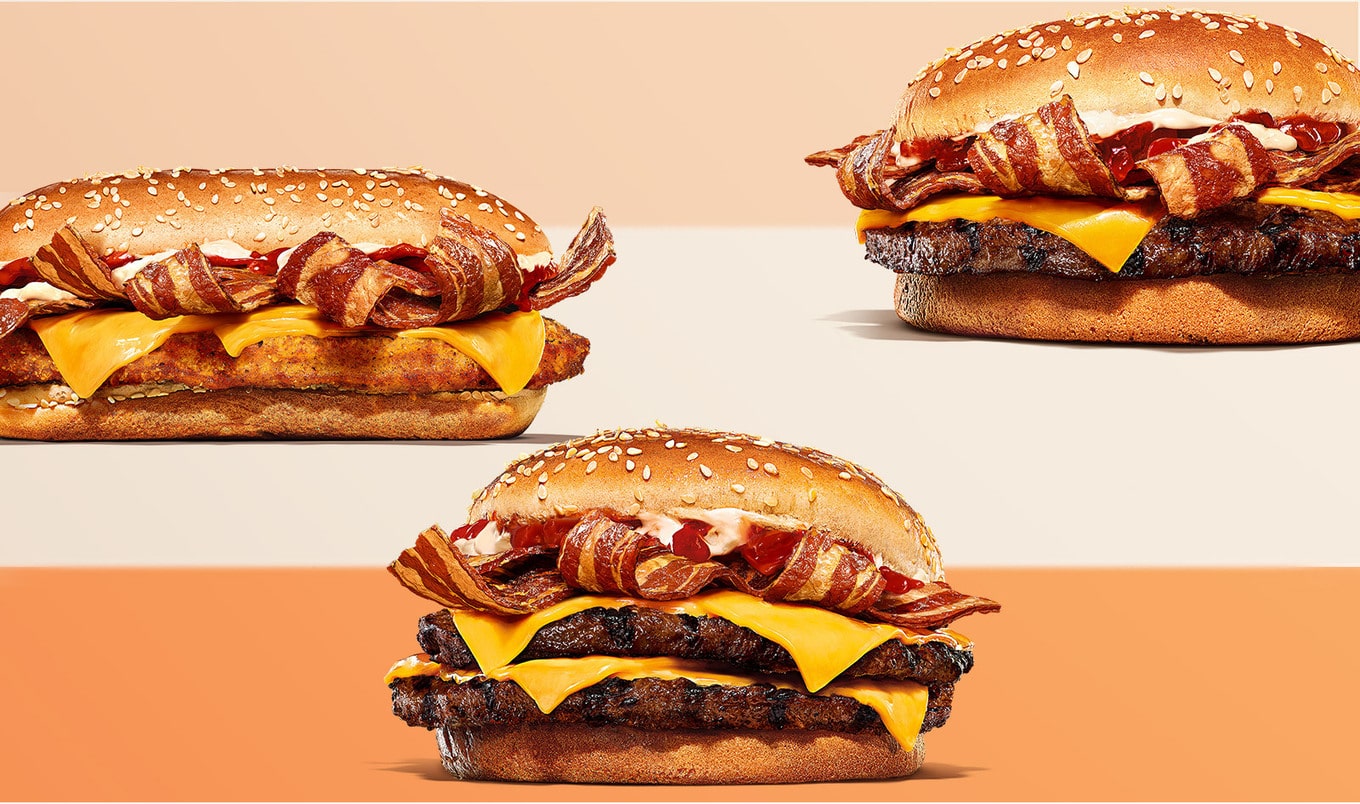 Burger King UK
Burger King UK
Burger King’s menu stands out with the largest proportion of plant-based main dishes among its fast-food peers. This includes the widely recognized Impossible Whopper and extends to innovative items such as vegan bacon cheeseburgers in the UK—where the chain aims to be 50 percent plant-based by 2030—and plant-based chicken in other major markets.
While the report recognized Burger King as a leader in this space, ProVeg also pointed out that the chains it analyzed had much room for improvement in terms of plant-based main dishes and overall options.
“Fast-food chains are ubiquitous and play an important role in normalizing climate-friendly food for millions of people around the world who might not otherwise consider the negative impacts of food choices,”Josh Bisig, Senior Project Manager at ProVeg, said in a statement.
“And these chains are increasingly doing this by making plant-based options more available, tasty, and affordable,” Bisig said.
For the latest vegan news, read:
JUMP TO ... Latest News | Recipes | Guides | Health | Subscribe

